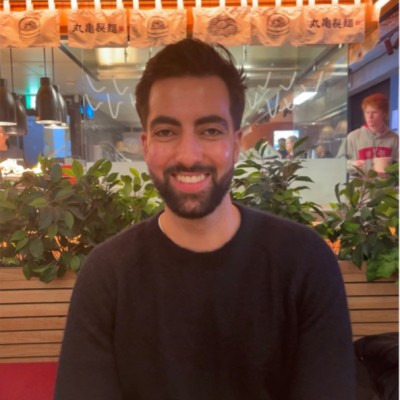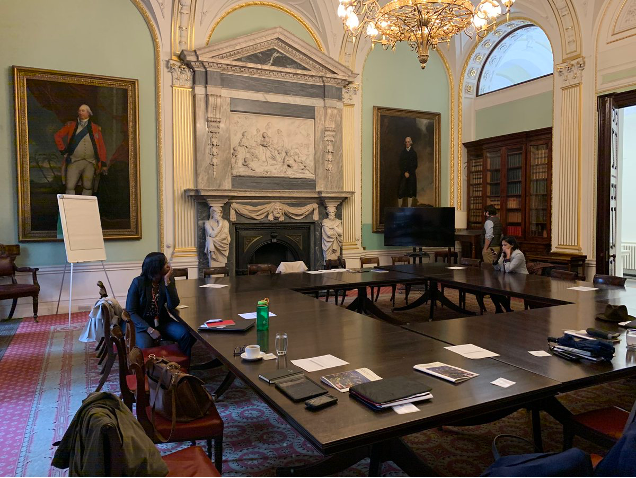We caught up with our economics alumni – Bruno Duarte. Bruno now works in the Home Office’s International Engagement and Strategy Unit, covering the regions of North & East Africa.
“It is the first job I have genuinely loved and wake up excited to do”
What course did you study at Kent? What attracted you to the course?
I studied both a BSc & MSc in Economics, and I particularly enjoyed the global aspect of the topic. During my A levels, I was fascinated with Macroeconomics. I quickly realised that A-level Macro and degree-level Macro were two different beasts. Nonetheless, I believe this was a big factor, especially considering at that age you don’t really know what you want to do. Kent offered a comprehensive course, and I liked the campus when I visited so it became a natural choice to continue my studies.
What are you doing now?
My role is quite hard to explain, I am still trying to figure it out myself but here is the short end of the stick. I work as part of the Home Office’s International Engagement and Strategy unit where I cover the regions of North & East Africa. My main objective is to promote Home Office priorities and equities in those countries. We have three main mission areas: Borders & Migration (which covers everything from border protection to asylum seeking), Public Safety (for my work we focus on serious organised crime), and Homeland Security (which covers mostly national security issues like counterterrorism). I, therefore, look for ways in which we can improve relationships with the countries in my regions, through state visits, meeting foreign government’s embassy staff, or working with our diplomats based abroad.
How did studying your course prepare you for your current position?
I think there are various things which my course helped to develop, but I will call out one main thing. In my role strategic or “big picture” thinking is quite important as issues are not usually clear-cut and are heavily interlinked to multiple factors. This is also similar in economics; I particularly recall learning about how subsidies to biofuels had unintended consequences in grain prices. This type of cause-and-effect thinking is important for the government as you need to understand if you intervene or make a change in one area how will it impact another.
Could you describe a typical day in your current role?
This is a bit of a cliché answer but there are no two days the same. Taking my last week for example, the start of the week I was preparing for a dialogue with a foreign country who were bringing a delegation of senior officials to talk about a range of security issues (this was held at the Foreign Office in the India Office Chambers, picture below. My director was chairing this discussion, so I had to brief him to make sure he knew what he had to say. The rest of my week was spent talking with both diplomats based abroad and colleagues from the Foreign Office to see how we could move engagement further in two other countries I cover.
The focus of my work tends to centre around engagement, either planning for engagement or doing it myself. In between all of this I read about what the Home Office is doing in all my countries and keeping up with all the news of those countries too.
What do you love most about your role?
I think there is quite a lot, it is the first job I have genuinely loved and wake up excited to do. The context of the work in Africa is extremely interesting. I have the privilege to read reports which cover such a wide range of topics: from the conflict in Northern Ethiopia, to how drought and climate change has an impact on the stability of the horn of Africa. The wide variety of topics makes it truly intriguing to learn about. It definitely beats international law which is what I had to read in my last role.
What steps did you take to get into your current role? What was the process during/after university?
I joined via the Civil Service Fast stream where I reached the final selection board for the Economist Stream. Ultimately, I wasn’t successful, but I performed well enough in my main assessment centre to be offered a separate scheme in the technology sector. I did this scheme for two years, however, the technology sector wasn’t for me so when the opportunity to join my current role came about I applied and luckily I was successful.
One thing that helped me apply to the fast stream was the mock interviews the fast stream used to do with Kent (unsure if they still do). The positive experience from this and knowing what the assessment centres were going to be like really pushed me to apply for the graduate scheme.
What employability support did you get from the University?
The mock assessment centre was the main thing. I also used employment support to refine my CV and attend career days when companies would come to Kent and talk about their various graduate opportunities.
What skills did you gain at the University, not just from your course that you use now in your career?
I would say something that I developed during my Masters was my soft skills, specifically my communication skills. I was never a particularly outstanding student; I cannot imagine 10 years from now anyone will be talking about the outstanding contributions I made to the field of Economics. However, I was always quite confident, admittedly during my bachelors, this was not always the case in my classes, but this is all part of the development process.
What changed during my Masters was that I followed my intellectual curiosity more. This is where lecturers can really help, they are an excellent source of information and challenge. For me, this built more confidence in the classroom which I think translated to better performances in interviews when I was applying for jobs. At University, it is easy to overlook soft skills and just concentrate on getting a 2:1 or a first, but in the working world the 2:1 gets you through the door, however, it is the soft skills that will let you climb the ladder.
What advice would you give to somebody thinking of coming to Kent?
If you want a campus university experience, you should definitely join! Just be careful eating anything near the library – those seagulls are savages!
What’s your best memory of studying at Kent?
I have great memories of the topics I learnt, the variety of issues I covered was truly fascinating. However, like most people, the best thing about University was the experiences I had with my friends. It is a truly once-in-a-lifetime experience, I have many fond memories of the friends I made there.
Bruno Duarte studied Economics BSc and Economics MSc, and graduated in 2020.


